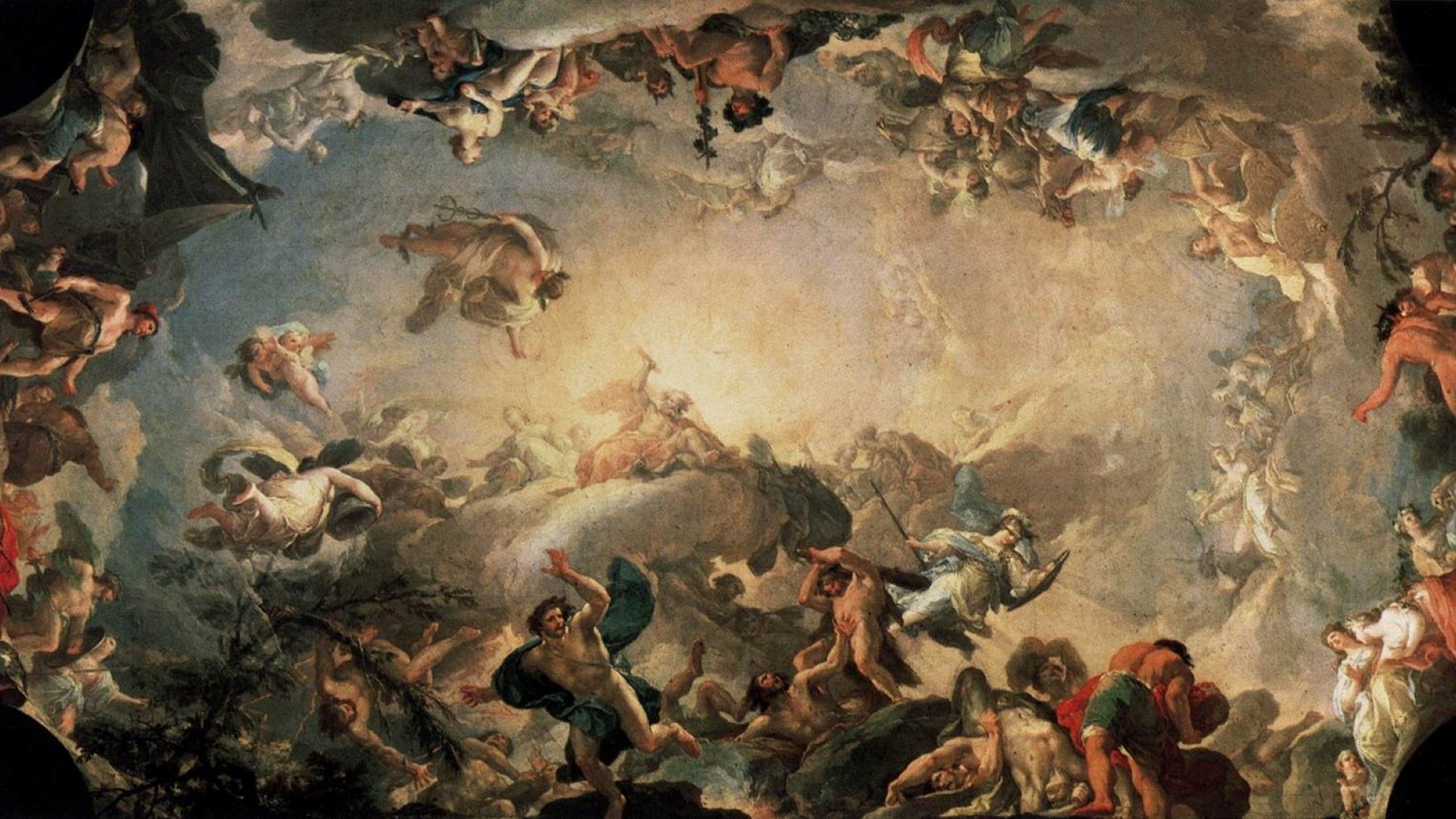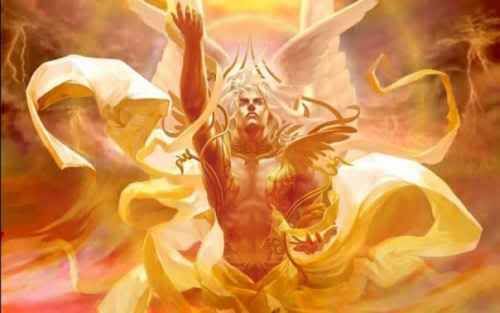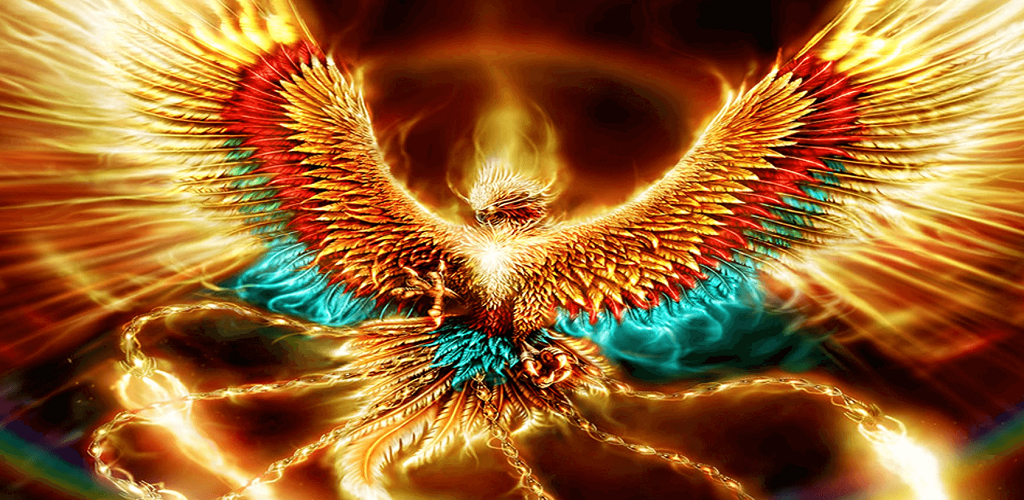
Helios

Titan god of the sun and sunlight
Helios was the Sun god in Greek mythology. As the god of the Sun, Helios was thought to ride a chariot drawn by horses through the sky, bringing light to the earth. The journey of the Sun, naturally, began in the East and ended in the West, at which point Helios completed his daily rounds and floated back to his Eastern palace in a golden bowl.
Details of this compelling description of Helios’s role as Sun god appear in myth, literature, poetry, and art.
According to the Greek poet Hesiod, Helios was the son of two Titans - Theia and Hyperion. In Hesiod's Theogony, therefore, Helios was also the brother of Eos (the goddess of Dawn) and Selene (the goddess of the Moon). It is interesting to note that the Dawn goddess Eos began the procession of morning, followed closely by her brother Helios.
There are several myths in which Helios plays a part. One of the most memorable of these tales is the legend of Phaethon. The Sun god also appears in the sad story of the ill-fated nymph Clytie. However, Helios is at his best as a sort of heavenly spy, from whom not much can be kept secret. In the Homeric Hymn to Demeter, the goddess Demeter asks Helios for assistance in locating her daughter Persephone.
Likewise, it is the Sun god who first notices the affair that is taking place between the Olympians Aphrodite and Ares in the Odyssey.
Helios was also the father to some important mythical characters. With his wife, the Oceanid Perseis, Helios had three legendary children - Circe, Pasiphae, and Aeetes (incidentally, the couple had a number of other, less illustrious, children).
The god also had numerous relationships with women that resulted in the birth of offspring. The aforementioned Phaethon, for example, was the product of such a union. These "children of the Sun" were sometimes referred to as Heliades in Greek mythology and literature.
Helios was known by the name Sol in Roman mythology.
[1]
His home islands
One of the two home islands of the god was Thrinacia. It was the island sacred to Helios, where his daughters Heliades lived. It is said that he once consorted with an Oceanid Clymene who then gave birth to seven daughters Aegle, Aetherie, Dioxippe, Helie, Lampetia, Merope and Phoebe. But they weren`t alone. It was also the island where his sacred cattle lived and it is where Odysseus and his men came on their journey.
It is said in the story that Odysseus, considering the warnings of Teiresias and Circe, wanted to skip the island, but was out-voted by his crew who wanted to rest, exhausted from their journey. They promised to Odysseus that they would never touch the sacred cattle of Helios, knowing they still have provisions on their ship. It was all agreed and they disembarked. The next day, after having a proper dinner spiced with some wine, they wanted to get on the Sea again but the bad weather arrived which kept them on the island for a month.
They soon ran out of provisions and started plotting of having some of the finest beasts of Helios' flock. And when Odysseus went to pray to the gods, they took the opportunity and gathered the cattle around the fire and, after praying, killed them and roasted them on the fire. While they were feasting, one of the Heliades, Lampetia, brought the news to her father. Helios was outraged and threatened the gods of Olympus that if there is no justice, he will go to Hades instead to shine upon the dead and never to return again.
Out of fear, Zeus calmed down Helios and promised him that he will punish them. Meanwhile, Odysseus praying, he heard the news from Calypso, but it was already to late. When he came back to the ship, he refused to join the feast. After six days of feasting, Zeus calmed the weather and men finally decided to set sail again. But when they came out on the open sea, the dark clouds, sent by Zeus, gathered around the ship and violent winds started blowing. The ship started to break apart and finally broke apart when Zeus struck it with thunderbolt.
All of the crew died except Odysseus who was spared because he refused to kill and eat Helios' cattle.
The other island that is mentioned to be the home island of Helios is Rhodes. According to Diodorus Siculus, this island was full in mud and soft when it formed. But Helios dried up all the wetness and filled the island with living creatures and among them were Heliadae, seven sons, named after him. Their names were Actis, Candalus, Cercaphus, Macar, Ochimus, Tenages and Triopas. When his sons reached manhood, he told them that the first people who will sacrifice to Athena will be ever protected by the goddess. There were also other people who sprang from the land and because Helios made it all possible, they worshiped him and the island became sacred to the god.
Interaction with other Gods and Semi-gods
Helios is often presented in the myths interacting with other gods and demi-gods. One of such is the myth of abduction of Persephone, where he and Hecate are the only ones who had heard the screams of Persephone when Hades abducted her. Demeter, Persephone`s mother, later came to the gods and demanded from them to tell them who is behind abduction. Then in fear of their sacred lands that could become barren, they told her that Zeus and Hades are to blame.
Helios was also, apparently, a good friend of Hephaestus whom he helped to fashion a plough of unbending adamant. They seemed to be in good relations because once Helios spied on Aphrodite and Ares who were having an affair in the palace of Hephaestus at Olympus. He immediately reported this to Hephaestus and the god of craftsmanship then forged magical chains and set the trap. With Helios they agreed that the sun-god would report him as soon as the trap is triggered. And when Hephaestus was on his supposed way to Lemnos, Aphrodite and Ares met in his chambers. They lay on the bed and triggered the trap.
Helios reported that to Hephaestus who then gathered all the other gods to come and see this adultery. Consequently Ares got banished from Olympus. Helios also helped demi-god Orion who was blinded and, while wandering around, came across Hephaestus who then directed him to Helios. The sun-god then cleansed his eyes with his rays and recovered his vision. The sun-god also interacted with Heracles who was searching for the island of Erythia. Unable to find the island, he, in desperation, shot an arrow towards the sun. Helios was impressed by the boldness of the hero and gave him the golden goblet with which he was able to cross the ocean and reach Erythia. Even Gaea, the mother goddess, once begged Helios to dry her with his beams after all the lands were frozen by the remains of Typhon, after Zeus had defeated him.
[2]
Sources
[1] "Mythography"
[2] "Greek Gods"
Our Mobile Application
Check out Our Mobile Application "Ancient Greece Reloaded"


